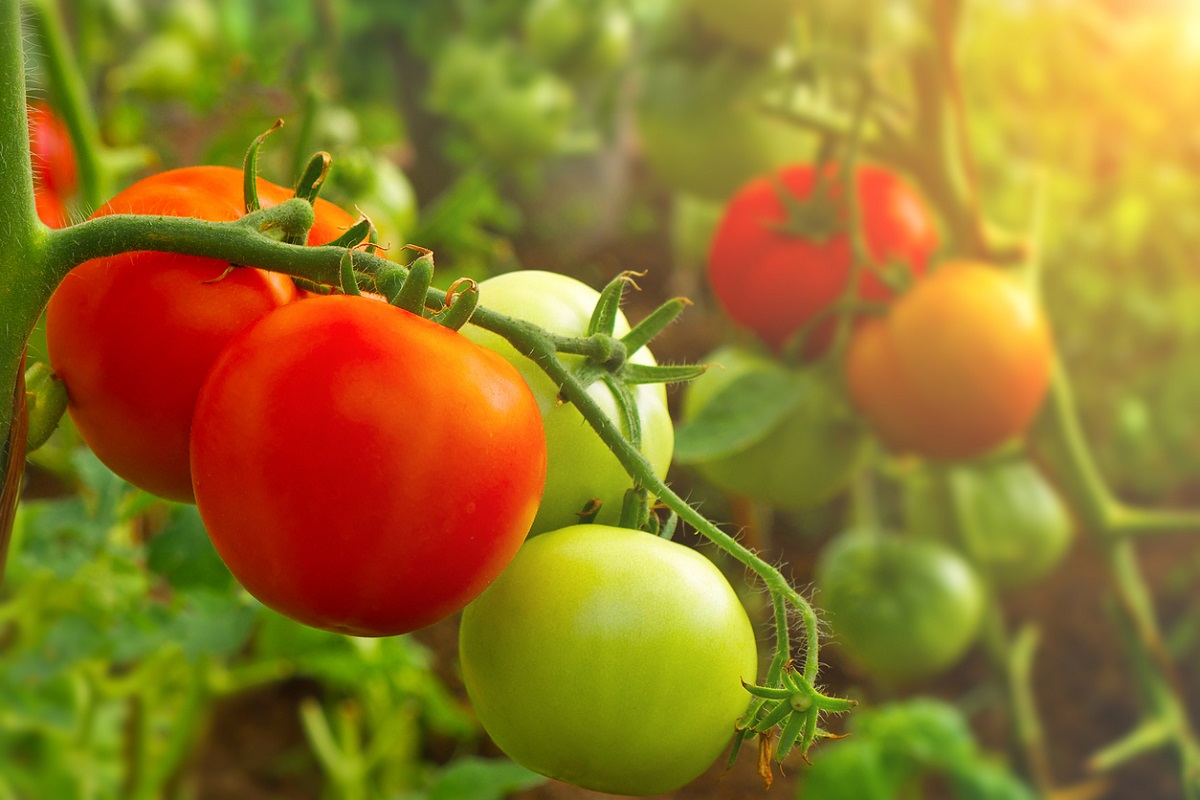
Identified Fruit Protein Helps Control Tomato Ripening
May 26, 2021| |
The expression of a single protein located in the subcellular organelles of the tomato was found to help speed up or slow down its fruit ripening, providing a novel opportunity for crop improvement.
Scientists from the University of Oxford focused on the role of plastids, or the sub-cellular organelles in fruits, in the ripening process of the tomato because the plastids are responsible for giving color to the fruit. Based on the literature, fruit ripening is linked to the biogenesis of chromoplasts but little is known about how plastids participate in this process. In their study, the scientists discovered the function of the SP1 plastids: its overexpression accelerated ripening shown by color changes, and knocking it down delayed tomato fruit ripening. They were able to demonstrate that SP1 can trigger broadening effects in fruit ripening by promoting chloroplast-to-chromoplast transition.
The results of their study revealed an important role of the plastids in the fruit ripening of the tomato and can provide a theoretical basis for the crop engineering of tomatoes.
Learn more from Nature Plants and the University of Oxford.
| |
You might also like:
- Research Reveals GORKY Protein Turns Bitter Tomatoes Sweet
- Japan Launches World's First Genome-Edited Tomato
- GM Tomato Enriched with L-DOPA Offers Affordable Medicine for Parkinson's Disease
Biotech Updates is a weekly newsletter of ISAAA, a not-for-profit organization. It is distributed for free to over 22,000 subscribers worldwide to inform them about the key developments in biosciences, especially in biotechnology. Your support will help us in our mission to feed the world with knowledge. You can help by donating as little as $10.
-
See more articles:
-
News from Around the World
- GM White Maize Contributes to Food Security in South Africa
- Study Shows Plants Respond to Different Light Intensities
- Scientists Discover Ancient Melon Key in Breeding Disease-Resistant Watermelons
- Researchers Identify Genomic Regions Associated with Yield Potential and Climate Resilience in Bread Wheat
- World Vegetable Center Sends Seeds to the Svalbard Global Seed Vault
- Herbicide Tolerant GM Canola Gets Commercial Approval in Australia
-
Research Highlights
- BGLS-producing Potatoes Could Lead to Broad-spectrum Protection from Pest and Diseases
- Scientists Show Correlation of Cry1Ac mRNA and Protein Abundance in Biotech Cotton Plant
- Polish Wheat's Long Grain Trait Traced to One Genetic Component
- Identified Fruit Protein Helps Control Tomato Ripening
-
Plant
- Rice VCS1 as Tool to Mark and Visualize Vegetative Cell of Pollen
-
Health
- Medicago's Plant-Based COVID-19 Vaccine Shows Positive Phase 2 Results
-
Read the latest: - Biotech Updates (January 21, 2026)
- Gene Editing Supplement (December 17, 2025)
- Gene Drive Supplement (February 22, 2023)
-
Subscribe to BU: - Share
- Tweet

